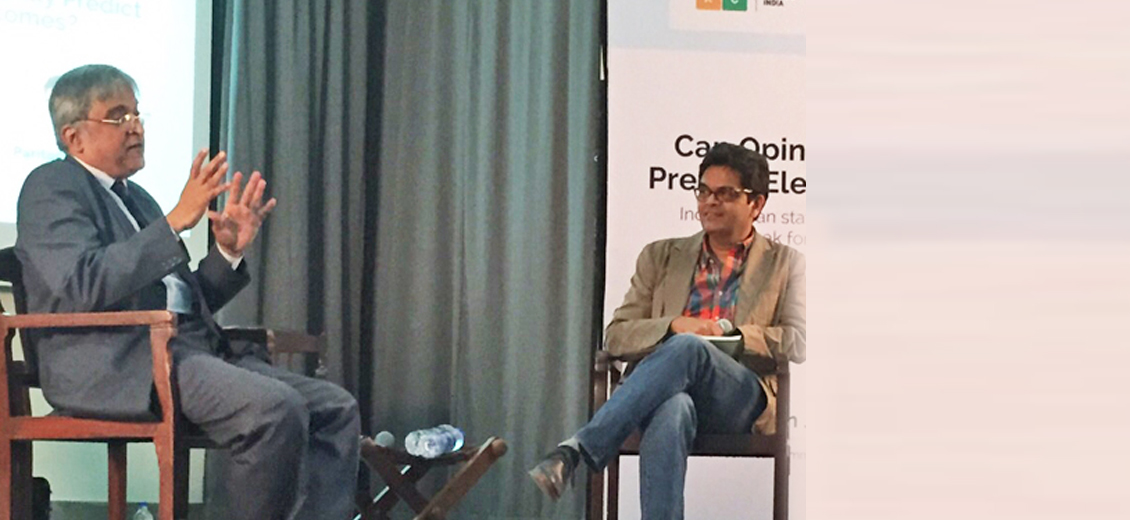
Can a sample size of, say 20,000 voters be sufficient to predict the outcome in a country with over 600 million voters? This is what Rajeeva L Karandikar, director, Chennai Mathematical Institute, who has over 15 years of experience in statistical study of elections and trends in voting—went on to explain at a Moneylife Foundation event sponsored by BARC India. This was followed by a highly interactive discussion with Paritosh Joshi, member of the technical committee for the Broadcast Audience Research Council India and the Media Research Users’ Council.
Using simple math and statistics, lots of common sense and a good understanding of the ground reality can yield very good forecast or predictions of the outcome of elections based on opinion polls and exit polls. These statistics, common sense and domain knowledge are the ingredients that go into psephology, explained Dr Karandikar.
Most surveys in India end up interviewing less than 0.05% voters. For an all-India survey, it may be much less. However, the predictive power of opinion polls lies in how the sampling of voters is done. Dr Karandikar gave the audience a few examples signifying the importance of proper sampling. A sample needs to of the right size, not very large, irrespective of the total population of voters. This held good even if the sample size was 4,000 irrespective of whether a constituency had one lakh voters or 20 lakh voters. Sampling, if properly done, has the power of determining the winner with 99% probability, said Dr Karandikar. Random sampling is a must to remove any bias. Failure to select a random sample can lead to wrong conclusions.
He also mentioned that the pre-election polls have a low predictive power due to volatility of opinion, not all respondents may vote and some may hide the truth as well. “Exit polls were devised to correct these effects: the gap between the opinion poll and date of voting and also that only between 50% and 70% voters actually vote,” he explained.
There are several questions raised about the integrity of opinion polls. Last year, in a sting operation, a number of opinion polling agencies approached by undercover reporters agreed to manipulate poll data. Dr Karandikar further mentioned that “the media hypes these projections as the truth, the whole truth and nothing but the truth.” But in reality, the polls should be seen as an indication, as to who is likely to win, will anyone get majority and so on. And it also gives a deeper insight into why people voted the way they did.”
Dr Karandikar’s detailed presentation on opinion polls was followed by a very lively discussion led by Mr Joshi. Mr Joshi questioned Dr Karandikar on various aspects of using statistics. To predict election outcome, Mr Joshi asked him on how they pick samples. Dr Karandikar explained in detail how they pick random samples using the masterdata of electoral rolls.
Cases in which they are unable to collect data, the sample size would be small compared to the entire sample data collected. Further Joshi asked on the ethical use of opinion polls and how it can effect the actual election outcome. Further it was asked whether people accurately respond to sensitive data. Dr Karandikar explained how the questionnaire is prepared and other statistical techniques that are used to resolve issues such as replying to sensitive questions.

